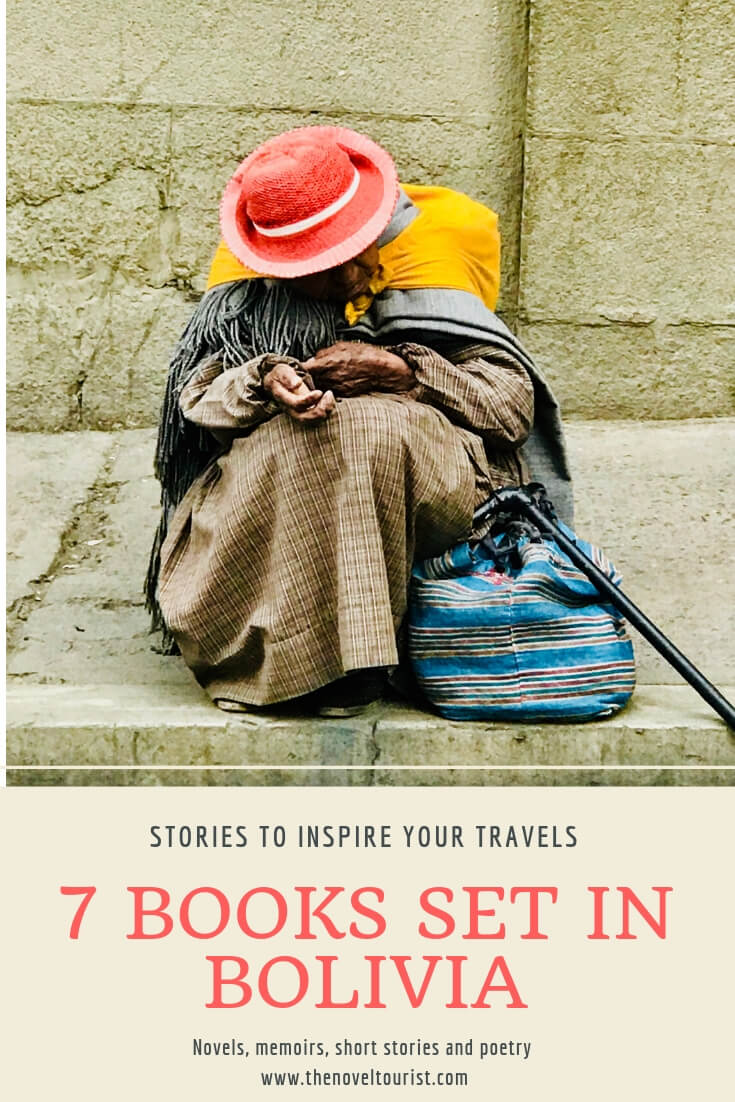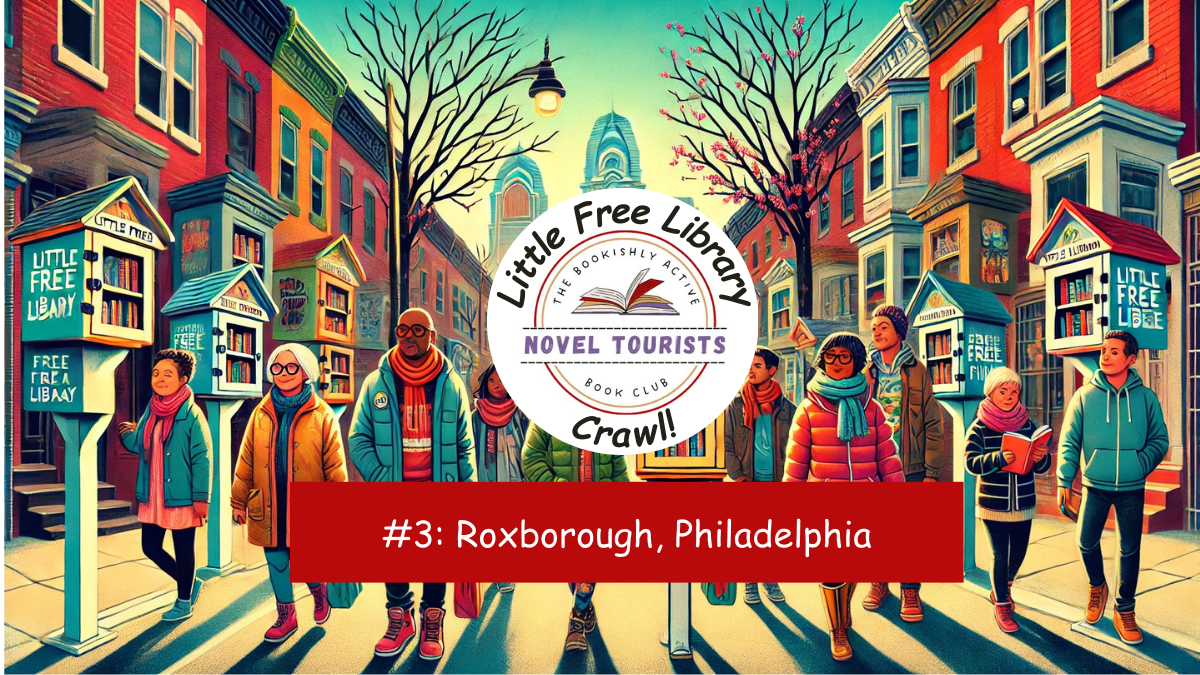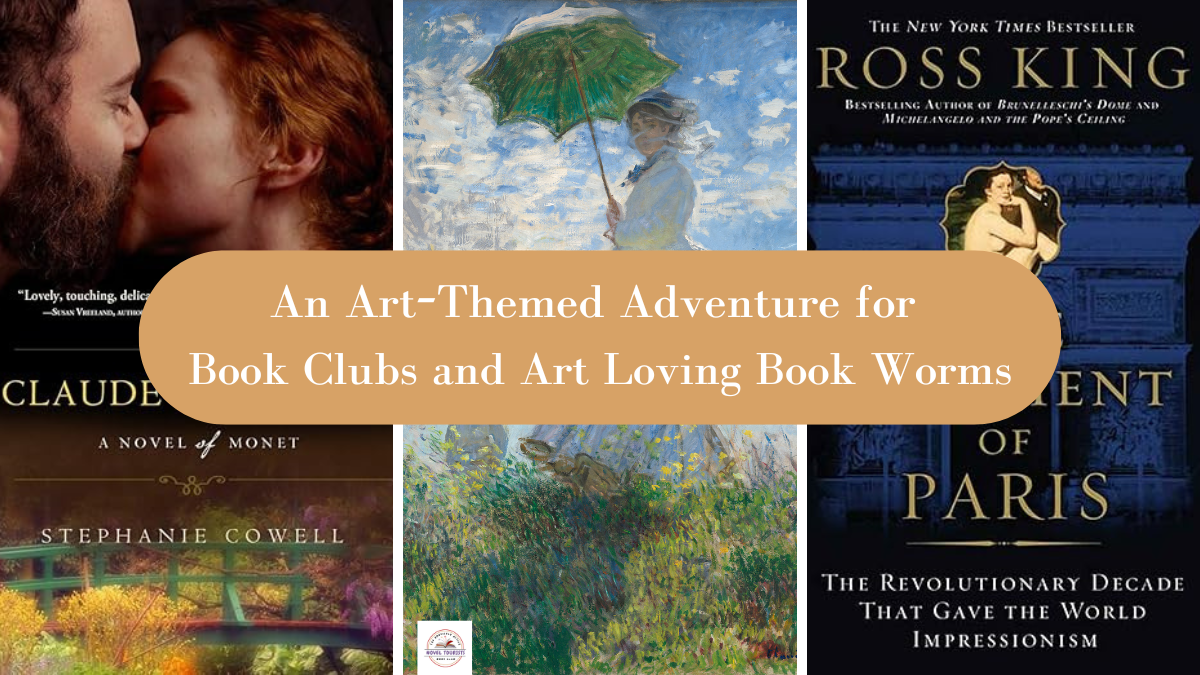
Before I share my recommendations of the perfect books set in Bolivia, may I please just rave about a bunch of fantastic people who are working so hard to improve the lives of Bolivian women? In July, I had the incredible opportunity to join my dad on a Rotary Club service trip to Bolivia. (Click on his link and you’ll quickly realize where my travel bug comes from!). The purpose of the program was to assist the folks at United4Change Center (U4C) in their mission to empower women in the mining communities near La Paz. I was especially eager to participate in this venture because it focuses on improving literacy rates within the indigenous population of women.

U4C’s goal is to combat the devaluation of women by creating a Women’s Support and Training Center in Quime, Bolivia. United4Change’s Center will offer both reading classes and skills training. As part of the volunteer project we assisted with participant registration, conducted home visits to help those who were too far away or otherwise unable to attend the center, provided child care during classes, built interior walls in the center and created an inspiration mural. The hand prints reflect the commitment each woman made toward reading and becoming empowered. “Me compremeto!”


We had the great pleasure of meeting Jimena, one of the participants from the prior year’s literacy class. Jimena was able to confidently stand before us and her peers and read a story aloud. Jimena’s pride in her accomplishment was evident and incredibly touching. Her voice echoed across the room carrying inspiration to those just beginning their own empowerment journey. Fortalecimiento
The book used to teach the literacy classes was written by Josefina Vera de Murillo, mom of Ximena, Sonia and Carla, and author of several education essays. Josefina’s daughters are dedicated agents of U4C and brought incredible knowledge and energy to the project while I was in Bolivia. Josefina’s book is called Hacia mi porvenir which means “Toward my future.” Josefina’s methodology has been employed in teaching Latino communities in Virginia and New Mexico. I am honored to possess a copy of her book!

Okay, okay, I know, you came here for a list of books set in Bolivia. Thank you for indulging me as I raved about the United4Change Center and the Rotary project! Without further ado, here are seven English language books based in Bolivia:
Seven (+1) Books Set in Bolivia
Sooo, there are not very many English language novels set in Bolivia, or at least not many that provide real insight into Bolivian life. Therefore, this list diverges from the typical list of novels and includes memoirs and poetry.
1. Let Me Speak (Memoir)

“It’s not a good book, it’s a great book….It’s a powerful indictment against the injustices of her life, her people, and her unrelenting struggle which has given meaning to her life. She’s a humble, courageous, extraordinary woman who was raised from the cradle with a social conscience by her equally extraordinary father. She came to terms with her mission in life and paid a brutal price because once she found her voice she wouldn’t be silenced. Her account is honest, terrifying and poignant. She wrote the book long before Evo Morales took center stage but she saw the future of Bolivia in the horizon. May she and her book live forever.” —Beatrice Busic, author of Beyond the Snows of the Andes
2. The Fat Man from La Paz (Short Stories)
The Fat Man from La Paz is among the short list of English language fiction set in Bolivia. It is a collection of short stories edited by Rosario Santos. Reviews are mixed with the consensus that some of the stories are incredibly well-written and others are, well, much less so. However, regardless of quality of writing, the shorties give you a real perspective and insight into life in Bolivia, South America’s poorest country.
“The book contains twenty short stories written by Bolivian writers addressing themes including racial politics, romance, and Bolivian history. While some of the stories are better than others – I liked the first story the best, and the title story, The Fat Man from La Paz the least – they each have a distinct voice, and are original and enjoyable reads.” —Laura, Amazon review
3. Marching Powder (Autobiographical)

Rusty Young was backpacking in South America when he heard about McFadden, a convicted English drug trafficker who ran tours inside Bolivia’s notorious San Pedro prison. Rusty bribed the guards to allow him to stay. For the next three months he lived inside the prison secretly recording the daily life of inmates. The description of prison culture is astonishing and unimaginable (the inmates can operate businesses inside the prison and have to pay for their own cells and food!), but apparently completely true.
I had the opportunity to stroll by San Pedro during my visit to La Paz and the guards waggled their fingers at me when I tried to take their picture. Having read Marching Powder (it was excellent and reads like a novel!) I knew I did not want to mess around with the guards. I shoved my camera back in my bag and quickly walked ran away. Unfortunately, it is no longer possible to tour the prison (although, I was told by a local that with enough cash anything could be possible in Bolivia….).
4. The Night (Poetry)
Jaime Saenz is said to arguably be the greatest Bolivian writer of the twentieth century. His poetry is apocalyptic, transcendent, hallucinatory, brilliant. Forrest Gander and Kent Johnson’s translations of Saenz’s work have garnered much-deserved attention and acclaim. For the first time in English is his masterpiece, The Night, Saenz’s most famous poem and the last he wrote before his death in 1986.
“American readers will find that The Night diverges from much contemporary American poetry, particularly in its elaborate symbolism and ethereal atmosphere. The Night is best read as a complete piece, preferably in one sitting, and probably more than once. Readers will find their time well spent.”—Lisa Butts, Pleiades
5. I am a Taxi (Juvenile Fiction)
I am a Taxi is juvenile fiction set in Bolivia’s city, Cochabamba. I enjoyed it! It was an easy read on the long bus ride from Potosi to Uyuni. The story is authentic and gives readers a glimpse into what life inside a Bolivian prison is like for the children. As you’ll find out from reading Marching Powder, the prisoners in Bolivia are permitted to have their families enter the jail and live there. The family members are free to come and go. A taxi is a child who runs outside errands such as delivering mail to the post office and buying and selling goods at the markets in the city.
“The book is quick paced, includes a few Spanish words (Saltenas, Chupe, etc.) and a good glossary for assistance is at the end. Many simple aspects of the Spanish culture were touched on, such as religion… and explaining the Quechua vs. Aymara Indians. Descriptive paragraphs of the laundry hanging to dry, bowler hats, merchants in the markets, and more made me envision being back on a village street in Bolivia.” — Tracey Foote, Amazon Review
6. Whispering in the Giant’s Ear (Memoir-ish)
Aymara women in bowler hats stand down tanks; citizen protests oust multinationals and two pro-globalization presidents. In Whispering in the Giant’s Ear, Powers brings alive the recent struggles of the Bolivian people. When he arrives in the rainforest, he meets an extraordinary Chiquitano Indian named Salvador who is fighting the extinction of his people. At the same time, the clock ticks for three multinational energy companies forced to curb the global warming. Both goals depend upon the survival of a stretch of pristine jungle. But as Indians and oil giants join to launch the world’s largest Kyoto project – using forests to absorb dangerous planetary greenhouse gasses – Salvador’s life is threatened by loggers collaborating with a racist Bolivian oligarchy. Whispering in the Giant’s Ear goes beneath the headlines, gracefully weaving memoir, travel, history, and reportage into an unforgettable chronicle of a “poor little rich country” attempting to engage the world without losing its soul.
7. Beyond the Snows of the Andes (Memoir)

“I really enjoyed this book. The development of the characters over the years in the extended family of the main character is deep, touching, and incredible. The story follows the poor family as they encounter a never ending stream of sorrows and suffering in their lives, primarily due to their poverty. It took me about 12 hours to read through the Kindle version, and I could scarcely put it down. Reading it brings out how much suffering is caused by the unfair division of wealth, but even more how love in the family helps everyone to overcome. This story is one tragedy after another, interspersed with a few brighter moments, all with family love as a background. I recommend it strongly.” — L. Woods, Amazon review
Bonus – a novel!
8. Plant Teacher (Novel)
One of the scariest adventures I went on while in La Paz was biking down Death Road in Bolivia’s Los Yungus. In Plant Teacher, a wayward drug paraphernalia finds its final resting place in Los Yungas. This 2011 novel set in Bolivia follows the lives of three Americans searching for their destiny in La Paz in late 2007 and early 2008. One hopes to create literature as he wrestles drug-induced hallucinations, his extended (and meddling) family, and the revelations being unveiled as he reads the diary of his recently deceased father. Another has signed on with a non-governmental organization (NGO) working with street kids in La Paz. The third is a late-30s lay missionary working on development projects in the Bolivian countryside.
Plant Teacher follows their lives as they become entangled with each other. And it also weaves in a score of other characters, including a host of Bolivianos — from street urchins and vendors, a waitress and a cleaning lady, to professionals and retirees and miscellaneous folk who crop up, then disappear into a rich tapestry of Bolivian life. Bolivia is both a backdrop to and yet another character in the story. The author lived in Bolivia and was a witness to many of the events described in Plant Teacher—adapted from Terry L. Marshall, Amazon review
That’s it for now. Happy Reading and Exploring Bolivia! If you have any suggestions to add to the list of books based in Bolivia, let me know! If you decide you want to read any of them, I appreciate you using the links in the post. Purchase through the links costs no extra to you, but I receive a small commission that helps keep The Novel Tourist going. Thanks for your support!
Pssst…If you love to read and also want to live a more active, engaged life, visit The Novel Tourist Facebook page. You’ll get great suggestions for novels that will inspire you to get out and explore, even in your hometown!










